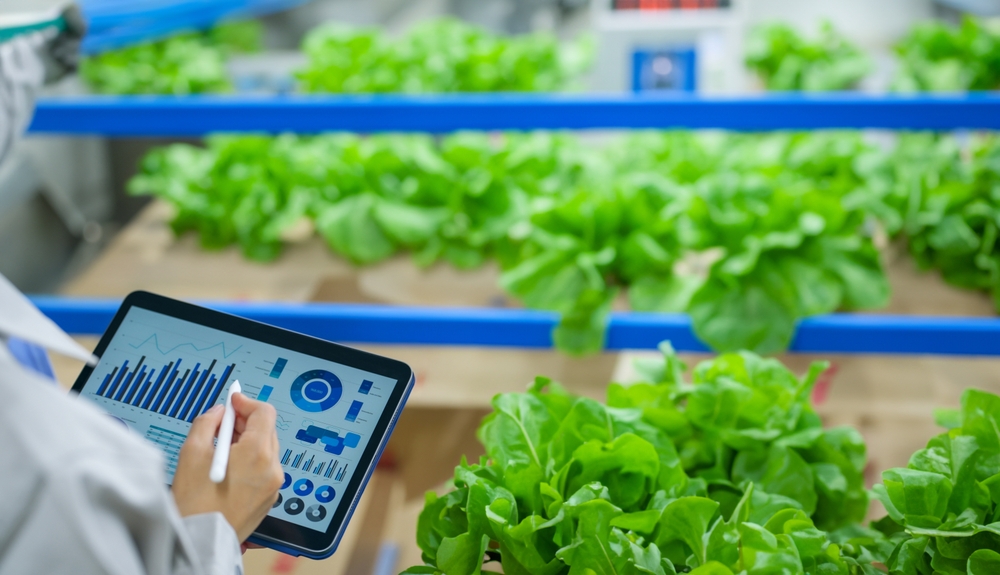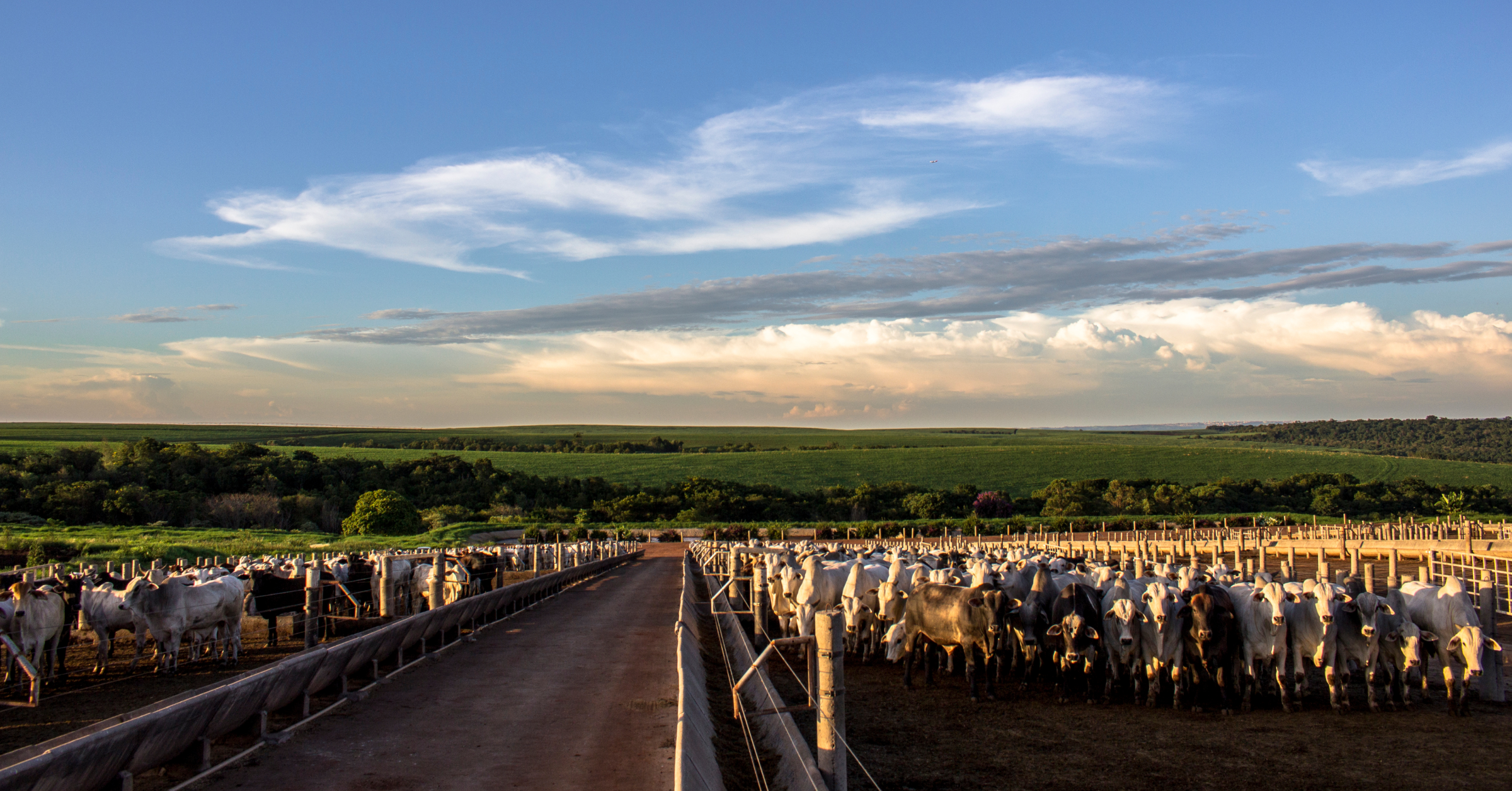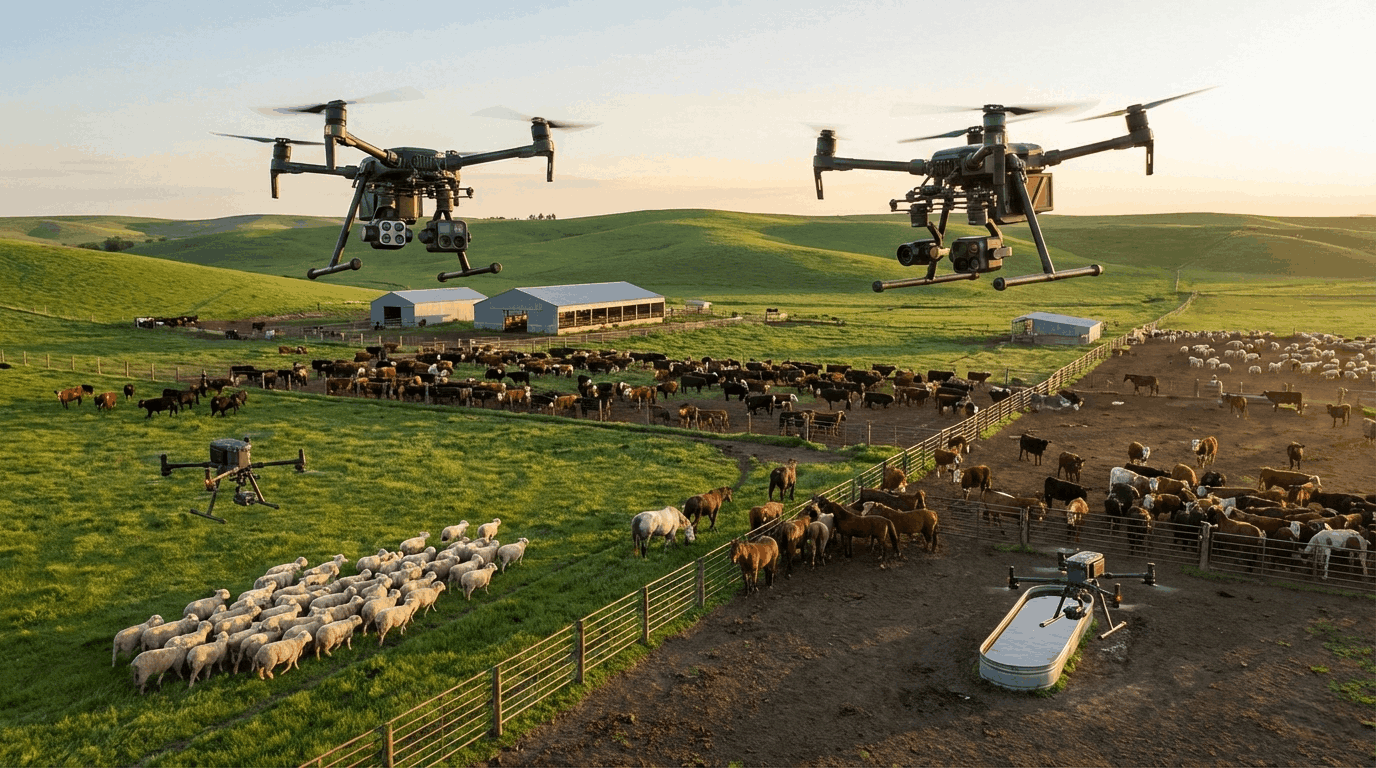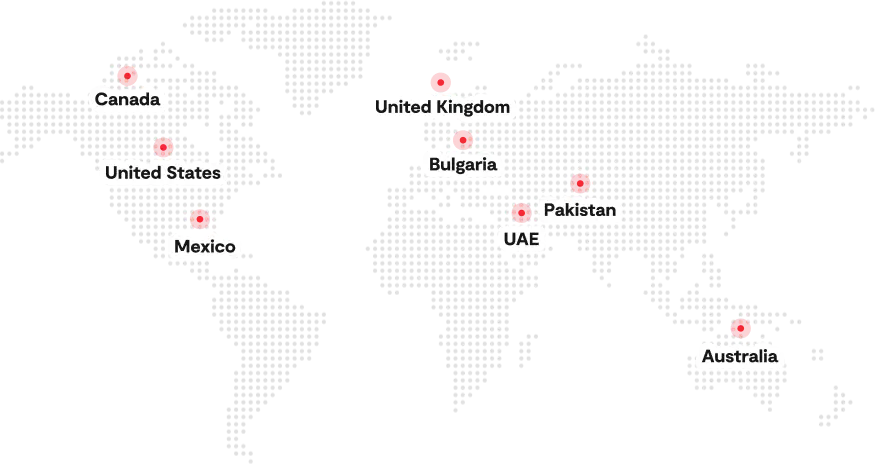Running a successful business requires more than just traditional methods. Farmers and agribusinesses face unique challenges, including fluctuating market demands, regulatory compliance, and efficient resource management. Integrating modern technology like Enterprise Resource Planning (ERP) systems has become crucial to staying ahead of these challenges.
ERP systems streamline and automate various operational tasks, providing businesses with a single source of truth. These systems are no longer confined to large corporations; they’ve become essential tools even for small and medium-sized enterprises in the agriculture sector.
In this article, we’ll explore ERP systems’ key features and benefits, particularly in agricultural operations.
What Are the Main Features of an ERP System? – Key Features of an ERP System
Enterprise Resource Planning (ERP) systems have become indispensable for businesses looking to streamline their operations and improve overall efficiency. As these systems evolve, many organizations also focus on long-term erp lifecycle optimization to ensure their ERP investment continues to align with changing operational needs.
ERP systems provide real-time insights and automation that enhance decision-making and productivity by integrating core functions like finance, inventory management, human resources, and sales into one unified platform. But what exactly makes an ERP system so powerful?
Let’s explore the main features of an ERP system that businesses should look for and how these features can transform everyday operations:
1. Integrated Modules
ERP systems consolidate multiple functions into a single, integrated solution, making operations more streamlined and less prone to errors. ERP integration tools streamline agricultural operations by connecting finance, inventory, and CRM systems into a cohesive platform. Key modules that are critical for agricultural businesses include:
- Finance & Accounting: Track expenses, manage budgets, and automate tasks like invoicing and payroll. This is especially crucial in agriculture, where profit margins fluctuate.
- Supply Chain Management: With real-time tracking, warehouse management, and procurement optimization, you can manage your supply chain efficiently, from seeds and fertilizers to distribution networks.
- Inventory Management: Farmers can minimize waste and prevent overproduction or shortages by automating restocking and providing real-time stock levels.
- Production Planning: In agriculture, accurate demand forecasting and yield tracking help optimize production schedules and resource allocation. ERP systems offer a real-time overview of production activities, ensuring all processes run efficiently.
- Human Resource Management (HRM): Track labor hours, manage payroll, and handle worker schedules—vital features for farms where labor needs fluctuate seasonally.
- Customer Relationship Management (CRM): The ability to track customer interactions and personalize communication helps improve customer service, which is particularly important for agribusinesses with long-standing client relationships.
2. Data-Driven Decision Making
One of the most critical features of an ERP system is its ability to provide real-time access to centralized data, which allows businesses to make informed decisions based on actual metrics rather than relying on estimates or gut feelings. For agricultural businesses, this can be a game-changer.
The data centralized in the ERP system can be analyzed through advanced analytics dashboards, offering critical insights into various operational aspects such as crop yields, resource utilization, and sales trends. For instance, by analyzing yield data over time, farmers can identify trends and patterns in crop performance, allowing them to tweak their methods to optimize production.
Moreover, predictive analytics tools embedded within ERP systems help agribusinesses forecast future outcomes based on historical data. For example, farmers can better predict which crops to plant and when by analyzing weather patterns, previous harvests, and market trends, optimizing their profitability and reducing risk.
3. Cloud-Based and Mobile ERP
In agriculture, where decisions must be made swiftly and sometimes in remote locations, mobility and accessibility are crucial. This is where cloud-based ERP systems prove invaluable. Unlike traditional ERP systems tied to on-premise servers, cloud-based ERP solutions allow farmers, agribusiness owners, and managers to access critical data anytime, anywhere in the office, at the farm, or on the go.
With a mobile ERP application, field workers can update data in real time, whether logging the harvest, updating livestock records, or adjusting inventory levels. This ensures that decision-makers always have the most up-to-date information at their fingertips. For example, suppose a pest outbreak occurs in a remote field. In that case, farmers can immediately pull up data on pesticide inventory and dispatch it to the affected area—all from a mobile device.
Cloud-based ERP systems also come with built-in disaster recovery and data backup, protecting valuable business data in case of physical damage to devices or equipment. This ensures that even in adverse weather conditions or field accidents, the agricultural operation’s essential data remains safe and accessible.
4. Customization and Scalability
Agriculture is a diverse industry, and no two agribusinesses operate precisely the same way. Whether managing a vineyard, running a dairy farm, or overseeing a large-scale crop operation, your ERP needs will differ. That’s why customization is one of the most valuable features of modern ERP systems.
Modern ERP systems offer a high degree of flexibility, allowing businesses to customize the solution to their needs. For example, an ERP system tailored for crop farmers might include modules for soil testing, crop rotation planning, or irrigation management.
Similarly, livestock farmers may require features for tracking animal health, feed schedules, and breeding cycles. The ability to customize the ERP system ensures that agribusinesses get precisely what they need to streamline operations.
Moreover, scalability is crucial in an industry that often experiences growth and expansion. As an agribusiness grows, so do its operational complexities. For example, a small-scale farm might use an ERP system to manage inventory and sales. Still, as the business grows, it could incorporate modules for supply chain management, quality control, and financial forecasting. Integrating a vendor management solution also becomes increasingly important to efficiently handle supplier relationships and procurement processes.
How Does ERP Improve Business Processes? – Key Benefits of Implementing an ERP System

Maintaining efficient operations is crucial for staying competitive. One powerful tool that helps businesses streamline their processes is an Enterprise Resource Planning (ERP) system. Integrating all critical functions such as inventory, finance, production, and sales into one unified platform, ERP systems provide a comprehensive view of a company’s operations.
This enables businesses to make informed decisions, reduce manual tasks, and boost productivity. Let’s explore the key benefits of implementing an ERP system and how it can significantly improve business processes across industries:
1. Streamlined Operations
ERP systems automate various processes, from inventory management to HR tasks, drastically reducing manual errors and saving time. Centralized systems also improve coordination between departments, ensuring that all team members access the same up-to-date information.
For instance, an ERP can automate restocking when inventory falls below a certain level, reducing the risk of stockouts. This is especially useful in agriculture, where missing critical supplies like seeds or fertilizers can have severe consequences.
2. Improved Data Accuracy and Transparency
Real-time data ensures transparency across all business functions. This can be a game-changer in agriculture, allowing businesses to track inputs (seeds, water, fertilizer) and outputs (crop yields, livestock performance) with greater precision.
3. Enhanced Financial Control
For agribusinesses, maintaining tight control over finances is vital. ERP systems offer precise tracking of costs, revenues, and profit margins. These systems also ensure compliance with financial regulations, taxes, and audits, making financial management simpler and more accurate.
4. Better Supply Chain Management
ERP systems optimize procurement, supplier performance monitoring, and shipment tracking. In agriculture, this translates into better logistical planning for seed, feed, and supply chains, minimizing delays and ensuring timely delivery.
5. Increased Productivity and Efficiency
With automated workflows and predictive analytics, ERP systems help businesses accomplish more in less time. For example, by analyzing crop yield trends, ERP software can help optimize resource allocation, leading to higher productivity and better yields. When Walmart implemented an ERP system, it significantly enhanced its operational efficiency and managed its supply chain and inventory management processes.
6. Regulatory Compliance and Reporting
Agricultural businesses must adhere to various regulations, from food safety standards to labor laws. ERP systems simplify reporting and ensure accurate documentation, helping companies comply with industry-specific regulations such as Prop 12 in the meat industry.
7. Improved Customer Satisfaction
ERP systems improve customer service by streamlining order fulfillment and integrating CRM functionalities. Agribusinesses can track customer preferences, manage orders efficiently, and offer personalized services, improving customer retention and satisfaction. Starbucks uses Oracle ERP, which automates daily business activities. One feature of this ERP is risk management and compliance. For businesses with unique operational needs, integrating custom CRM software development can further enhance ERP capabilities by tailoring customer relationship management to specific workflows and goals.
How Folio3 AgTech Helps Businesses Implement ERP Systems
Agribusinesses attempting ERP implementation without proper guidance often face high costs, increased complexity, and business disruption. This is where a reliable service provider like Folio3 AgTech comes in.
Folio3 AgTech offers customized ERP solutions specifically designed for the agriculture industry. Their services range from system selection and data migration to employee training and ongoing support. With over two decades of experience, Folio3 AgTech ensures a smooth ERP implementation process, minimizing business disruptions and maximizing ROI.
How a Leading Poultry Provider Benefited from Folio3 AgTech’s ERP Solution
Arabian Farms, a leading poultry producer in the UAE, needed to improve its communication and process management. Folio3 AgTech implemented a customized NetSuite ERP solution, which resulted in:
- Enhanced Reporting: Real-time insights into sales, inventory, and procurement management helped Arabian Farms improve decision-making.
- Reduced Inventory Costs: The ERP system allowed better tracking and forecasting, reducing unnecessary stockpiling and inventory costs.
- Better Supply Chain Management: With improved visibility into the supply chain, Arabian Farms reduced bottlenecks and improved order accuracy.
Conclusion
Agricultural ERP systems offer numerous benefits for agricultural businesses, from streamlined operations to improved customer service. When you pair this ERP system with software for call centers, you create an even stronger link between your customer service team and your clients, ensuring that every call is handled swiftly and with a personal touch. However, successful implementation requires careful planning, the right system selection, and expert consultation. With Folio3 AgTech, businesses can overcome the complexities of ERP implementation and fully capitalize on its benefits.
If you’re ready to improve your agricultural operations with an ERP system, Folio3 AgTech can help you through every step.
FAQs
What Makes ERP Unique Over Other Systems?
The core function of ERP, its ability to integrate all the different departments and functions of a business, makes it unique among other software systems.
This feature allows access to real-time information and improves collaboration within departments.
What are the Three Advantages of Using Enterprise Software in an Organization?
The three advantages of using ERP in an organization are:
- Improved Efficiency
- Better Collaboration
- Access to real-time data
What is ERP in Simple Words?
In simple words, ERP is enterprise resource planning software that integrates different business functions into a single unified system. The software helps automate processes, improve workflows, and reduce reliance on manual processes.





